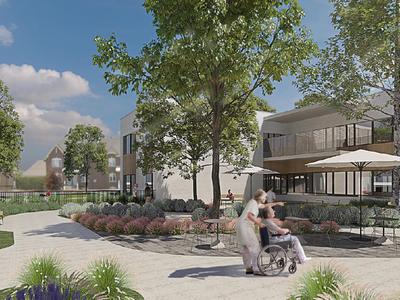FAQ
There are currently 50 Maison des aînés et alternative available or under construction in Quebec.
A Maison des aînés et alternative is a residence for seniors and those with physical or mental health challenges. These homes are designed to be responsive to the needs of residents and are integrated into their community. They have individual rooms with private bathrooms and common areas to relax and socialize. The architectural concept is similar for all Maisons des aînés in Quebec. It brings together households of 12 individual rooms with toilet, shower and common living areas.
Yes. However, an assessment of the animal is necessary. The welfare of other residents will also be factored into the decision.
No. The Maisons des aînés are not substitutes for CHSLDs. Rather, they provide a complementary public accommodation offer in Quebec.
Unfortunately, this option is not available in the settings of the Maisons des aînés et alternative. However, many private retirement homes offer this option at an affordable price.
The cost of services is set by the Ministère de la Santé et des Services sociaux (MSSS). The rent that the resident will pay is assessed by the MSSS according to his financial situation. The MSSS also ensures that each resident has a monthly amount to cover personal expenses. This is the same mode of operation for CHSLDs.
A needs study is carried out in each administrative region. It may happen that it shows that housing for seniors is a priority. In such a case, the infrastructure will be used only to accommodate seniors.
At any time, loved ones can come and visit a resident. They are invited to share different times of the day, such as a meal or sleep near the resident, in his room. An extra bed is available in all rooms to allow the presence of another person at any time of the day or night. The continuous presence of a caregiver helps provide emotional support, collaborate with staff, and accompany the person during appointments outside the facility. Caregivers are considered full team members.
The Maison des aînés et alternative welcome seniors who need personalized support adapted to their needs, including health care, assistance and psychosocial well-being. They also offer a program of activities for residents and support for their loved ones. The Maisons des aînés et alternative are safe, adapted living spaces for those in need of extra support.
CHSLDs are long-term care centers for seniors who have lost a lot of autonomy and who, for the most part, have cognitive disorders. Residents need ongoing medical accompaniment and support to meet their needs. Most residents are seniors, but younger people with intellectual disabilities, autism spectrum disorders or physical disabilities can also be accommodated here.
Private senior residences (often called RPA in French) are housing units designed for elderly individuals who desire independence while receiving support for everyday activities. Residents are tenants and can benefit from cleaning services, meals and other basic needs, while living in a secure environment that promotes their well-being. These retirement homes are an ideal choice for seniors who wish to maintain their independence while benefiting from support adapted to their needs.
Maison des aînés et alternative are public facilities that are part of integrated health and social services network (CISSS) and integrated university health and social services network (CIUSSS). The admission process is the same as that in a CHSLD. Admission to a Maison des aînés requires a health professional assessment, specifically a social worker, to determine level of autonomy. If necessary, a request for accommodation is communicated to the accommodation access mechanism team. Remember that people who live in CHSLDs and Maison des aînés et alternative are experiencing a serious loss of autonomy. An independent or semi-autonomous person cannot live in a CHSLD or Maison des aînés.
As with all forms of accommodation, interested parties have the opportunity to make a choice. This choice will be taken into account in the decision made by the health network team that manages access to accommodation.
Similar to CHSLDs, the services offered include medical care and bio-psycho-social support. Recovery services, leisure activities, as well as accommodation services such as food, laundry and domestic assistance are also offered.


























































